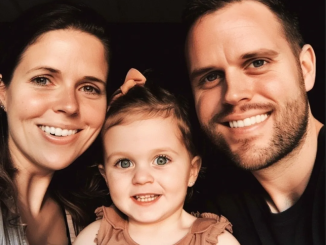Recognizing Early Warning Signs of Cancer
Your body has a remarkable way of signaling when something isn’t right, including early indicators of cancer. Being attentive to these signs can lead to early detection and timely medical intervention. If you experience any of the following symptoms, it’s important to consult a doctor for further evaluation.
Subtle Symptoms to Watch For
Cancer doesn’t always present itself in obvious ways. Sometimes, the signs are subtle and seemingly unrelated to the affected area. Identifying these early symptoms can be crucial for prompt diagnosis.
- Wheezing or Shortness of Breath – Many lung cancer patients recall this as an initial but overlooked symptom.

- Frequent Fevers or Infections – This can be a sign of leukemia, as abnormal white blood cells weaken the body’s immune response.
- Difficulty Swallowing – Commonly linked to throat cancer, but it may also be associated with lung cancer.
- Persistent Weakness and Fatigue – Fatigue is a widespread symptom of various cancers, especially when it appears alongside other warning signs.
- Loss of Appetite or Feeling Full Quickly – This could indicate ovarian cancer, particularly when accompanied by persistent bloating.
Physical Changes That May Indicate Cancer
Some cancers cause noticeable bodily changes. Recognizing these can be vital for early diagnosis.
- Rectal Bleeding or Blood in Stool – A major warning sign of colorectal cancer requiring immediate medical attention.
- Lumps in the Neck, Underarms, or Groin – Swollen lymph nodes could signal changes in the lymphatic system, potentially pointing to cancer.
- Excessive Bruising or Unexplained Bleeding – Abnormalities in blood cells, often linked to leukemia, can cause unusual bruising or prolonged bleeding.
- Bloating or Unexplained Abdominal Weight Gain – Sudden and persistent bloating is a frequent early symptom of ovarian cancer.
- Unexplained Weight Loss – This may be an early indicator of digestive system cancers or cancer that has spread to the liver.
- Red, Sore, or Swollen Breasts – Inflammatory breast cancer can cause these changes, and a flattened or inverted nipple could also be a concerning sign.
Pain-Related Symptoms
Persistent pain in certain areas may be an indicator of cancer. Paying attention to ongoing discomfort can be crucial.
- Unusually Heavy or Painful Periods or Bleeding Between Cycles – A common symptom of endometrial or uterine cancer.
- Chronic Cough or Chest Pain – Persistent coughing or chest pain could signal lung cancer or leukemia.
- Pelvic or Abdominal Pain – Pain and cramping in this area can be linked to ovarian cancer, while leukemia can cause an enlarged spleen leading to abdominal discomfort.
- Lower Back or Right-Side Pain – This can indicate liver cancer or, in some cases, breast cancer that has spread to the spine.
- Persistent Stomach Pain or Upset Stomach – Frequent stomach discomfort could be an early warning sign of colorectal cancer.
Steps to Lower Cancer Risk
Noticing these symptoms doesn’t necessarily mean you have cancer, but seeking medical advice can help rule out serious conditions. Early detection significantly increases the chances of successful treatment. Additionally, maintaining a healthy lifestyle, managing vitamin D levels, and reducing exposure to environmental toxins can help lower cancer risk.
Share this article with your friends and family to spread awareness about the early signs of cancer.
WATCH : Taylor Swifts Utter Disrespect For Celine Dion
Taylor Swift made history at the 2024 Grammys, becoming the first person ever to win “Album of the Year” four times. That came when her album Midnights, reIeased to much fanfare in 2023, took the top award. Not everyone was fawning over Taylor, however, with some on social media expressing their displeasure with how, in their view, rudely she acted when she accepted their award.
Essentially, they argued that Ms. Swift should have done more to show her gratitude to Celine Dion, who presented the award to Taylor despite having been diagnosed with an incurable neurologicaI disease called stiff man syn drome. To many viewers, it appeared that Taylor ignored Dion when accepting the award despite Dion’s difficulty in being on stage.
For example, one commenter on Fox News’ post on Facebook about Taylor’s Grammys win wrote, “Good for her but she should absolutely be ashamed of herself! She walked on stage, took the Grammy from Celine & dismissed her like she was no one! Celine Dion is battling a disease & I’m sure struggIed to even show up! I felt so sorry for her & the way she was treated! Somebody, please teach Ms. Taylor some manners!”



Leave a Reply